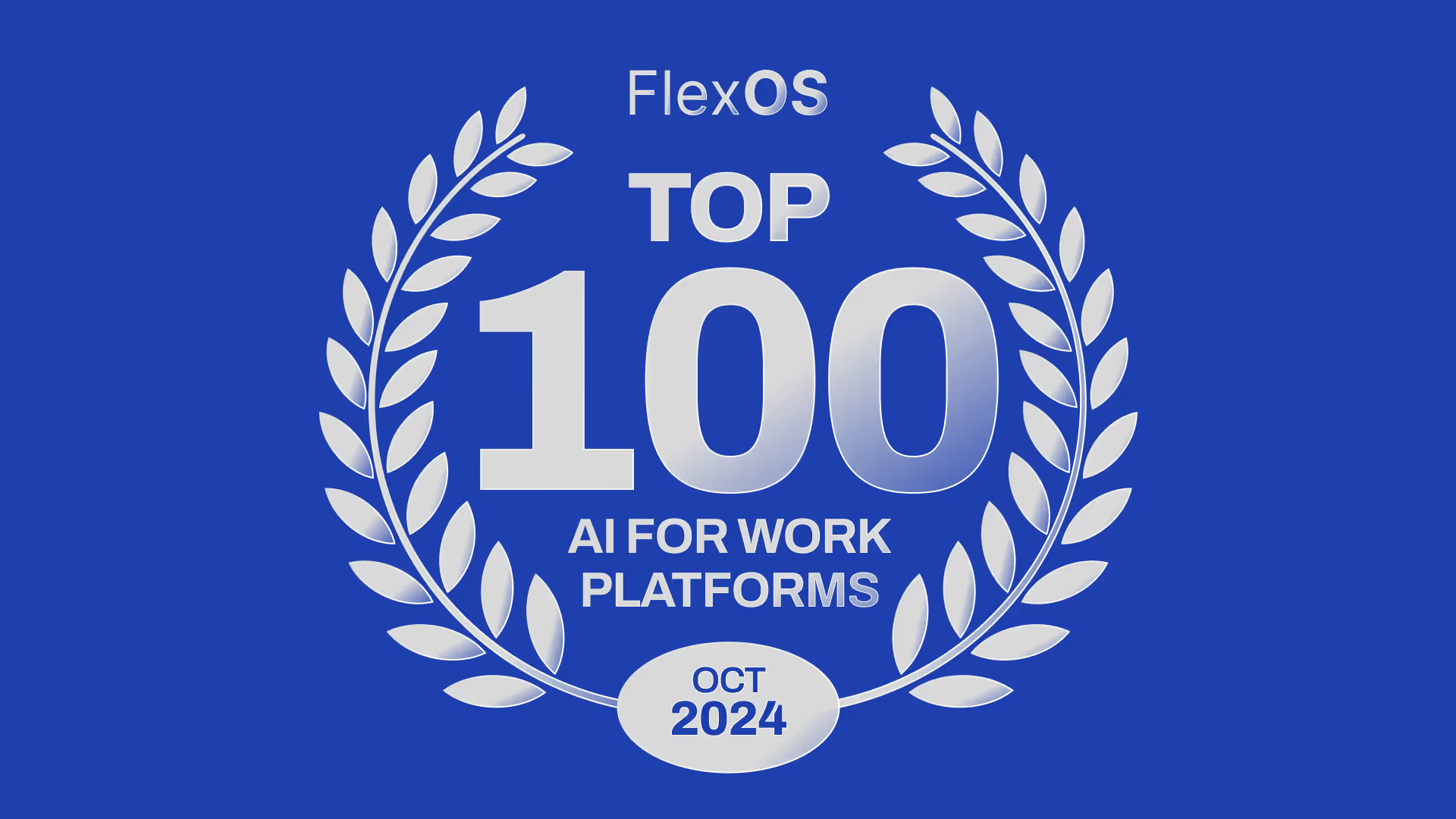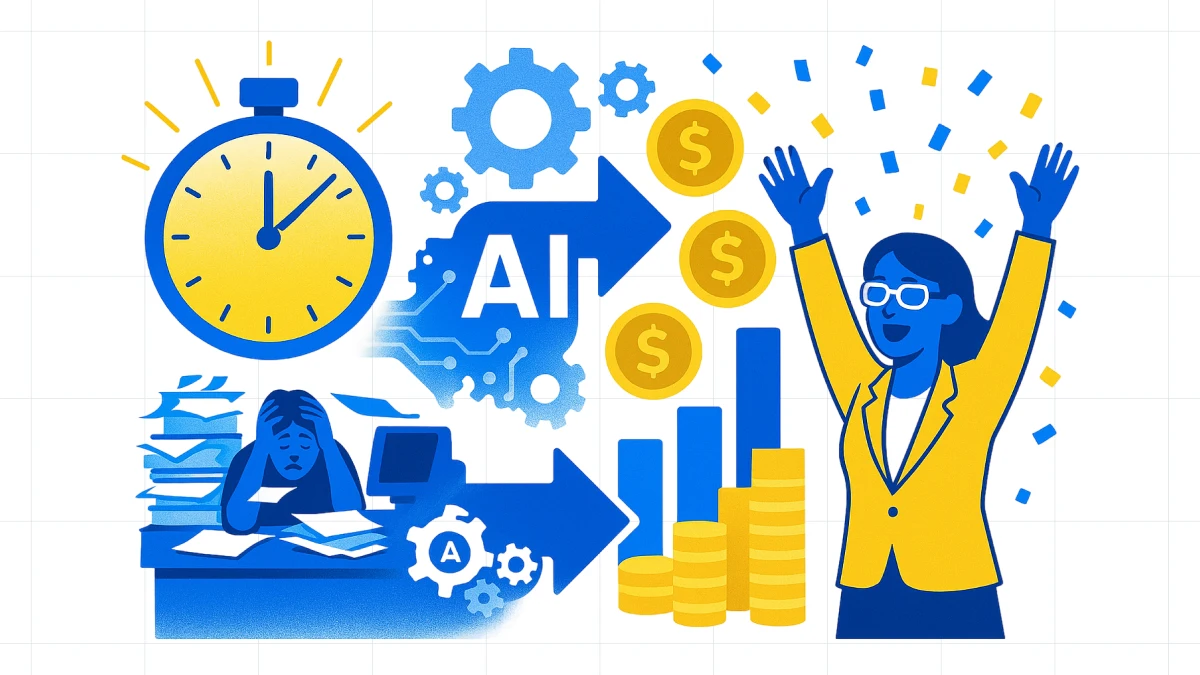2023 research from Bain & Company shows that Generative AI can reduce labor time by up to 41%.
I believe it’ll be much more, and we may see a jobless future in certain industries.
What’s clear, however, is that Gen AI in the Workplace is an amazing tool to work smarter, not harder, in the future of work.
So why wait? Below, I’ve outlined 18 ways on to use AI at work, featuring 39 tools, based on my own experience working with most of these tools for over a year.
1. Let AI Write and Edit
AI tools like Grammarly AI, ChatGPT, Copy.AI, Jasper.ai, Lex.page, and Rytr.me can enhance your writing process.
You can get GPT-powered writing assistance for free if you pay for tools like Coda or Notion.
They assist in generating ideas, offering language suggestions, and improving your writing quality.
I could not live without Grammarly AI (previously Grammarly Go) anymore. I would happily pay whatever they want to charge me (please don’t tell them).
It’s so effective in writing and rewriting copy, from emails to long articles like these. Here’s Grammarly in action, right inside Google Docs, which I use:

These tools can also aid in drafting quick responses and reviewing copy, saving time and enhancing communication efficiency.
Writing is such a popular application of Generative AI because the core of generative AI is interpreting and creating text. No wonder it's one of the key AI trends in 2024.
(Note: Wherever you read ChatGPT, it’s safe to assume that its competitors Claude, Bard, Bing, and others can deliver the same or similar.)
2. Create Images with AI
Tools like Midjourney, Dall-E 3, Dream Studio, Adobe Firefly, and Canva Image Generator simplify the creation of presentation images.
By describing your vision, these AI tools can generate relevant and engaging images, streamlining the process of visual content creation for your presentations and documents.
Can you believe I created the image below in 5 seconds with a simple message? Yes, it’s possible now – fully with AI. (The header image for this article is also AI.)

3. Transcribe Meetings with AI
AI tools such as Fireflies, Otter.AI, and MeetGeek can transcribe and summarize meetings, turning hours of recordings into concise, actionable notes. Microsoft, Google, and others have started integrating capabilities directly as well.

I’ve found that meeting transcription tools save time and ensure accuracy in capturing important discussion points and decisions. They’re also extremely helpful to our team in searching inside meeting transcripts and finding key soundbites.
Microsoft’s Jared Spatero shared that using tools like this means he doesn’t have to attend most meetings. Doesn’t that sound like a dream?
4. Use AI to Optimize Your Calendar
Research has proven that the more ‘focus time’ you have, the better you perform (and the more workplace happiness you’ll experience!) But planning your calendar for 2-3 hour blocks to do focused work is time-consuming.
In 2023, a new class of AI tools like Reclaim.AI came up that does this for you automatically. They also integrate scheduling links like Calendly, which contribute to optimizing focus time.
I’ve been using Clockwise and now Reclaim, and it’s truly helping me greatly optimize my time. I’ll let this nice graph that Clockwise provided me tell that story:

5. Practice Conversations Using AI
ChatGPT and similar platforms can be used for rehearsing challenging conversations, from performance reviews to conflict resolution.
This practice can enhance a manager's communication skills, making them more effective and confident in handling sensitive or critical discussions.
See, for example, Yogesh Chavda, who created a Mock Interview Coach GPT, where you can practice your next job interview (NSFW.) Or take OpenAI’s own “The Negotiator” (also a GPT), which you can use to practice any negotiation - from a contract to a difficult conversation.
I recently had an invoice dispute (DM me for the tea) and used The Negotiator to get some practical advice that changed the conversation's course.
6. Utilize AI for Data Analysis and Predictive Analytics
AI tools like Tableau, Microsoft Power BI, and Polymer are valuable for sifting through large data sets to identify trends and make predictions.
These insights can guide decisions regarding team performance, sales strategies, customer behaviors, and more, enabling data-driven management.
Now, I don’t analyze a ton of data, but I’ve heard from people who do that this can be a game-changer.
7. Create a “Second Brain” for your Team or Organization
Knowledge management used to be a very manual process of uploading and poor search capabilities. But with AI, you can now unlock the total knowledge of an organization.
Tools like Notion Q&A let you create a GPT for all knowledge in your team or organization. It truly feels magical “talking” to everything your company knows.

8. Organize Priorities and Workload Using AI
AI tools can help identify and prioritize tasks that align with your organization's goals.
Tools like our AI Action Plan Generator, Coda, and Notion can analyze work patterns and objectives.

They can also suggest optimal allocation of resources and focus areas to enhance team productivity and goal attainment.
Sometimes, you just need a bit of help to translate a big goal into the first small step, and that’s what these tools can do.
9. AI-Powered Coaching for Managers
AI coaching tools like Kona offer personalized advice and skill development opportunities.
They can simulate various managerial scenarios, guiding effective leadership, decision-making, and team management, enhancing managerial capabilities.

In the case of Kona, you can get coaching on any management challenge right from Slack, which is often more convenient than going to ChatGPT. It also provides more context and topical understanding than a regular chat with AI.
10. Engage Employees with AI-Generated Ideas
AI, particularly tools like ChatGPT, can suggest creative ways to engage and motivate your team.
From planning team-building activities to devising innovative work strategies, AI can provide tailored ideas that align with your team's dynamics and organizational culture.
My first article on AI was actually “AI in HR,” which looked at employee engagement as a key topic. And indeed, we’ve been using GPT a lot to create new engagement ideas.
11. Adopt a Virtual AI Assistant for Efficiency
AI assistants like Xembly (“Chief of Staff”) and Microsoft Copilot can manage routine tasks such as scheduling, note-taking, and workload organization.
By automating these tasks, AI assists you in focusing on more strategic aspects of your role, such as team development and decision-making.
I don’t use these tools as we are on Google, and I have Reclaim and Notion, which provide similar functions, but I would try out Xembly if I didn’t.
12. Hire Smarter with Specialized AIs

Tools like Deel IQ can help access highly specialized information not in ChatGPT’s knowledge base.
For HR professionals and people leaders who need access to information about local labor laws and salary benchmarks, tools like Deel IQ can be a lifesaver.
13. Monitor Competitors with AI
Use AI tools for up-to-date monitoring of competitors' activities.
Tools like Browse AI and Scraper notify you of important updates, such as new products or pricing changes from competitors, keeping you informed in real time.
Now, I always believe that we are working together, not against each other no matter what the industry, so I don’t have ‘competitors’, but these tools surely will come in handy for those with competitive companies to look out for.
14. AI-Driven Branding and Logo Creation
We’ve already discussed AI creating images, but it can also do great logos.
Tools like Looka and Brandmark assist in designing logos and creating a cohesive brand image across all marketing materials.
Fortunately, I have a great human to do this work, but I may be tempted in the future to… no, just kidding, Wangie.
15. Produce High-Quality Product Shots and Videos
Utilize AI tools like Runway to generate professional-grade product shots and videos, reducing the need for expensive studios or photographers.
In my article “Jobs AI will replace,” I looked into applications of this software, and it’s scarily powerful.
Of course, in line with AI’s theme of developing at breakneck speeds, it’s only gotten better since I penned that post.
16. Create Professional Presentations with AI
The promise is that you can use AI tools such as Beautiful.ai to design engaging and professional slide decks, eliminating the need for a professional designer.
And I’ll keep “AI for PowerPoint” in this list in case you want to play around with it.
However, as a professional slide maker with over 10 million hours of PPT experience, these tools still lack applicability.
The regular software (Powerpoint and Google Slides, for some, perhaps Canva) are too well-developed for any tool to compete with them.
I suggest waiting for Google and Microsoft to bring AI to their slide apps to reach their full potential.
17. Automate Social Media Posting
Are you spending too much time on the socials? Implement AI-driven platforms for social media management.
Tools like Ocoya (brand management across channels) and Taplio (for your personal or brand LinkedIn) automate social media content creation and scheduling, enhancing your online presence.
I’m using Taplio and find it a helpful tool to keep social relationships strong and develop new content angles at times.

In a wider context, which is related to Marketing, you can explore the future of AI-powered marketing with AI Marketing Tools, and check how these cutting-edge technologies are revolutionizing the industry.
18. Create Professional (Training) Videos with AI Avatars
Speaking of content creation.
Utilize AI tools like Synthesia to generate professional-quality videos using virtual avatars, streamlining video creation for presentations and documentation.
I’ve played around with Synthesia and thought it was pretty good. I’m considering training it on my voice and never having to read my Future Work column again!
Want to go deeper?
You can benefit from AI without learning anything about the technology.
But if you want to dig a bit deeper, several courses come highly recommended:
- Stanford: Machine Learning Specialization for Beginners (4.9/5 based on 17k reviews)
- Deeplearning: Generative AI for Everyone (4.9/5 based on 117 reviews)
- IBM: IBM AI Foundations for Business Specialization (4.7/5 based on 1.2k reviews)
- Google: Introduction to Generative AI (4.6/5 based on 1.9k reviews)
- UPenn: AI For Business Specialization (4.7/5 based on 380 reviews)
Otherwise, this roundup of 39 tools helps answer the question of how to use AI at work. I believe they will save you a lot of time and help you work happier.
Need more AI tools to make your work and life 10x easier? Check out our Top AI Websites, Top AI Tools, How to Use AI, Free AI Tools, AI Productivity Tools, AI Recruiting, AI Presentation Generators, and AI Accounting.
Use our Prompt Generator to create 10x more powerful prompts and see more value from your ChatGPT usage.
Want to learn more about AI? Check out our guide to AI Trends, AI Statistics, AI Prediction, AI Cold Outreach, AI in Remote Work, AI in the Workplace, AI in Management, AI in HR, and Women and AI.
If you have any suggestions, please contact me here or reach out on LinkedIn!






















